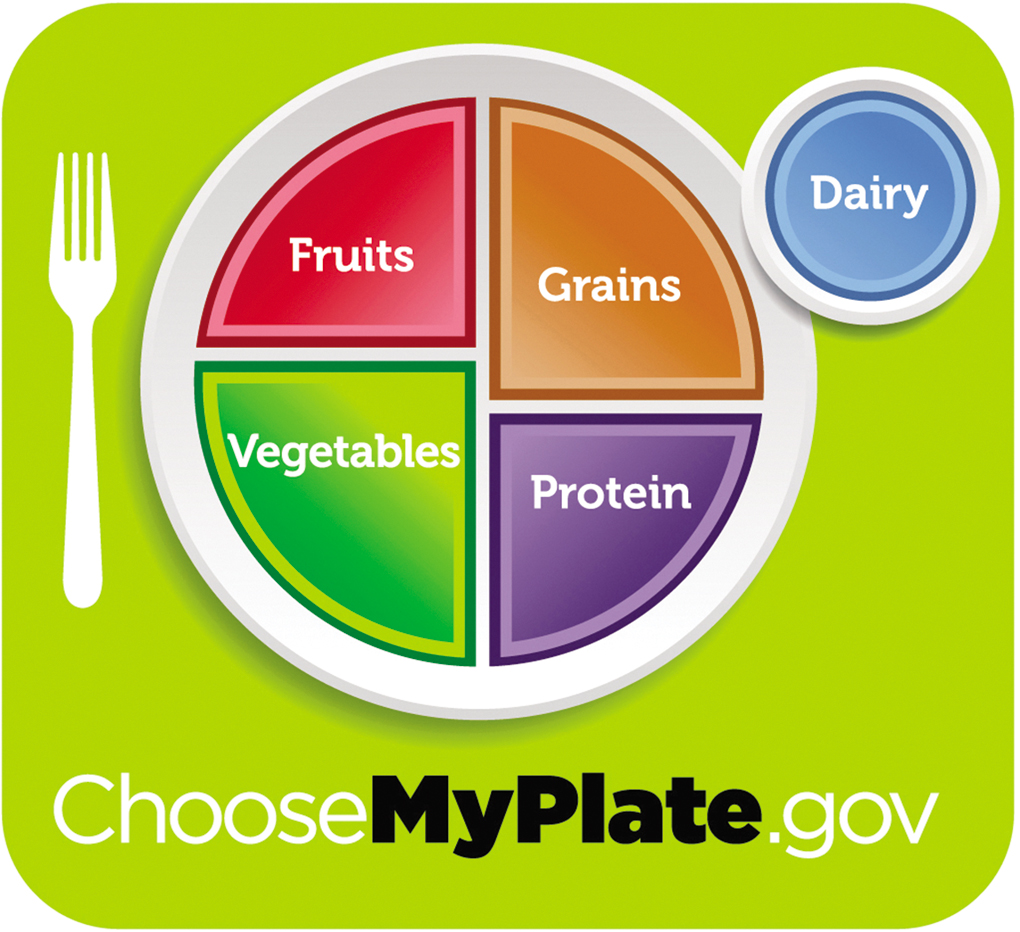The Importance of Good Nutrition
There is a clear connection between what you eat and drink, your overall health and well-being, and stress. Eating a lot of junk food will add pounds to your body and reduce your energy level. When you can’t keep up with your work because you’re slow or tired, you will experience more stress.
My Favorite Pants Don’t Fit
Have your eating habits changed since you started college, and have those changes caused you to put on some weight? Are you struggling to make the right decisions about what to eat? Have you found that fitting exercise into your daily schedule is nearly impossible? This chapter offers nutrition and exercise strategies. Which of these strategies are you willing to try? Pick one nutrition strategy and one exercise strategy, and chart your progress for a week. Are you willing to continue for a second week? What about incorporating a second strategy?
Caffeine is probably the best example of a commonly ingested substance that is linked to high stress levels. College students, like many adults, use caffeine to help with productivity. Caffeine increases alertness and reduces feelings of fatigue if used moderately. Up to 400 milligrams (mg) of caffeine a day appears to be safe for most healthy adults. That’s roughly the amount of caffeine in four cups of brewed coffee, ten cans of cola, or two “energy shot” drinks.1 However, too much caffeine can cause nervousness, headaches, irritability, upset stomach, and sleeplessness—all symptoms of stress. It is important to monitor your daily use of caffeine. Many students consume energy drinks, which can contain more than the recommended amount of caffeine. Be careful to limit your caffeine intake. Using coffee or energy drinks when you’re cramming for exams, or even to get through the day, can become a crutch. Find other sources of energy, like jogging or power napping.
Many of us find that gaining weight is really easy; a few days of donuts, pizza, and soft drinks can pack on unexpected pounds. Losing weight, even a small amount, is far more difficult. Let’s face it—food is one of life’s greatest pleasures, and having the self-discipline to say no to a giant piece of birthday cake is difficult. Weight gain also will reduce your energy and interest in exercise.
If you are gaining weight and losing energy, what can you do about your eating habits? It might not be easy at first, but if you start making small, positive changes, you can build toward a new way of eating. You will not only feel better, but also be healthier and probably happier. Here are some commonsense suggestions:
Make Good Choices
Resist Junk Food Temptations
Food—especially savory or sweet items—may be one of life’s greatest temptations. Remember that your choices of what and how much you eat now will affect what you feel like and look like twenty, thirty, or forty years from now. Look around you and take note of people in their forties, fifties, and sixties. Which ones do you think made healthy food choices when they were your age, and as they grew older?
- Limit snacks to healthy options such as fruit, vegetables, yogurt, hummus, and small portions of nuts, like pistachios, almonds, cashews, or walnuts.
- Be careful about “fad” diets. Before using diet pills or beginning a diet regimen such as the Paleo, Atkins, or South Beach diet, check with your physician. These diets may show results quicker than maintaining a balanced diet and exercising, but they might cause you to miss essential nutrients, especially if you are an athlete. Simply changing your portion sizes can be a first step toward weight loss.
- Drink plenty of water. Drinking 64 ounces of water a day helps flush your system, keep your skin healthy, and manage weight. A rule of thumb: To keep hydrated, drink water before and after a workout and between meals.
- Add variety to your meals. Dining halls can offer several options, and the most important strategy is to eat a balanced and well-portioned meal that includes protein, vegetables, grains, salad, and fruit. Stay away from fried and sugary foods. Choose grilled or broiled lean meat and fish instead. A good reference is ChooseMyPlate.gov, shown in Figure 13.1. Watch your portion sizes. Avoid large, jumbo, or king-size fast-food items and all-you-can-eat buffets.
- Eat a healthy breakfast! Your brain will function better if you eat a power-packed meal first thing in the morning. Try oatmeal, smoothies, eggs, and foods high in protein to help you focus and boost your metabolism for the rest of the day.

FIGURE 13.1  MyPlate Eating Guidelines
MyPlate Eating Guidelines
This is the new MyPlate icon, which was introduced by the federal government in 2011 to replace the food guide pyramid. ChooseMyPlate.gov provides tips and recommendations for healthy eating and understanding the plate’s design.
Courtesy USDA

- Always read the nutrition label on packaged foods. Be skeptical of marketing on labels. Instead, look for the number of grams of fat, sugars, protein, and carbohydrates. Check the sodium content: Sodium (table salt) will make you retain water, which increases your weight, and can possibly increase your blood pressure. Do not let “nonfat/low-fat” options entice you. Often, these products contain chemicals and unhealthy by-products that are worse for you than their full-fat counterparts.
- If possible, take time to cook your own food, bring your lunch, and pack your own snacks. Preparing your own meals and snacks is almost always healthier and more cost-effective than eating out or buying snack food at convenience stores.
high-impact practice 3
Work Together
Portion Size and Your Meal Plan
How does portion size factor into what you put on your plate, whether you’re home, in a dining hall, or in a restaurant? Do you fill up your plate? Do you eat everything on it? Do you monitor whether you feel satisfied or full during the meal? Do chicken fingers and toasted ravioli appeal to you more than grilled chicken and sautéed vegetables? Do you think that college students are less likely to eat in a healthy manner than the general population? Why or why not? Discuss your thoughts on these questions in a small group.
Risky Eating Habits Although we advise you to think about what you eat from day to day, we also advise you not to overthink your diet. Remember that the key to good health is achieving balance, and an obsession with food intake may be a sign that things are out of balance. Over the last few decades, an increasing number of both male and female college students have been developing eating disorders such as anorexia nervosa (an extreme fear of gaining weight), bulimia (overeating followed by self-induced vomiting or laxative use), or binge eating disorder (compulsive overeating long past the feeling of being full).
Anyone who is struggling with an eating disorder should seek immediate medical attention. Eating disorders can be life-threatening if they are not treated by a health care professional. Contact your student health center for more information, or contact the National Eating Disorder Association (nationaleatingdisorders.org or 1-800-931-2237) to find a professional in your area who specializes in the treatment of eating disorders.